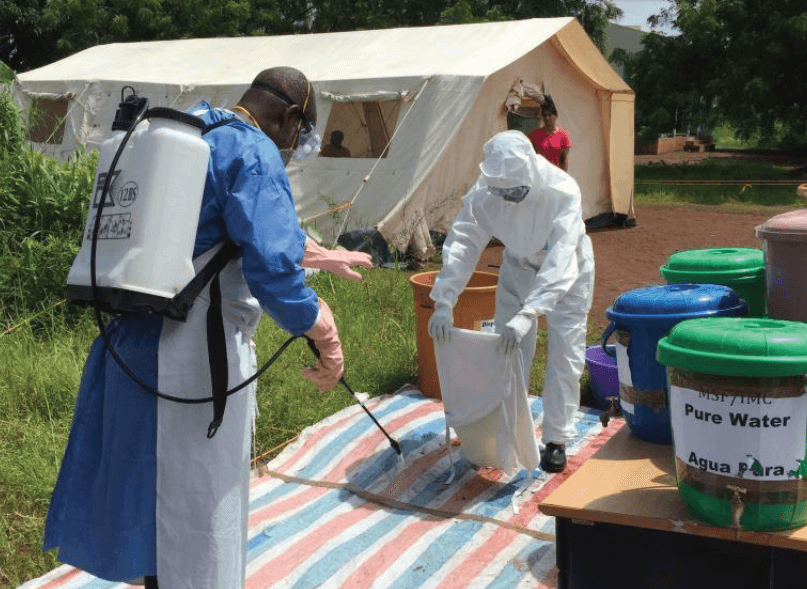As Sierra Leone celebrates 42 days free of Ebola, we take a look at the success of the rapid response team training on Ebola, part of International Medical Corps's Start project in Guinea Bissau.
Rapid response teams are key to strengthening health systems and preventing the spread of Ebola. The teams prepare medical staff to respond to potential Ebola cases by equipping them with knowledge of Ebola epidemiology. Training teams is important because screening and case management have been identified as areas for improvement by agencies working in the region.
International Medical Corps had previously responded to the epidemic in Liberia, Sierra Leone, and Guinea and so was able to apply their past experience in Guinea-Bissau with existing curricula and materials for Rapid Response Team training.
The training is five days long and includes: epidemiology and rapid response, rapid response team structure and deployment, isolation of suspected cases, community evaluation, surveillance, contact tracing, personal protective equipment, social mobilisation, laboratory samples and processes, chlorine solutions, case management, health promotion and ambulatory services
Carolyn Vopelak IMC Monitoring and Evaluation Reporting Coordinator said “Ebola Virus Disease has pushed the Ministry of Health, National Public Health Institute and partners to take a closer look at the health system and identify gaps which could be extremely dangerous in the face of such a detrimental disease”.
One participant of the training said: "Everything we saw this week, we will be able to implement in the field to help avoid seeing Ebola case[s] in Guinea-Bissau."
The training is part of the DFID funded Start Ebola Virus Disease preparedness programme, which began in April 2015, and runs in Mali, Cote d’Ivoire, Senegal and Guinea Bissau, involving seven agency partners.

